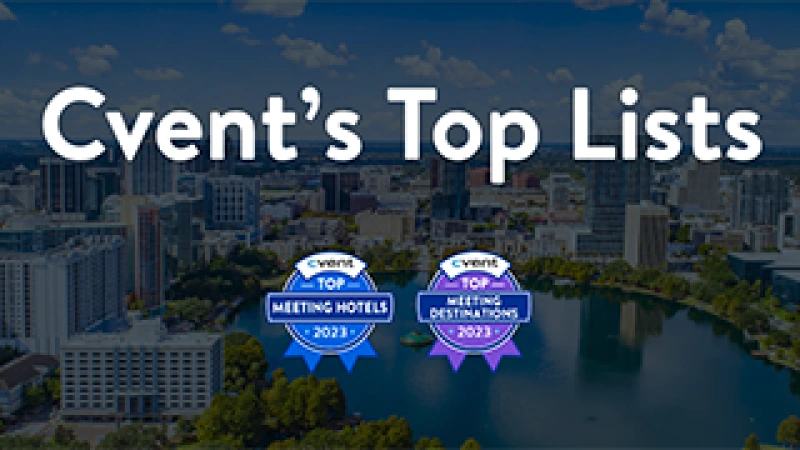What is a Hotel Business Plan, and Why Do You Need One

90,562 hotels and motels were operating across the United States in 2022, offering travelers more than five million bookable guest rooms.
That is a lot of competition. And precisely the reason why you need a hotel business plan.
With this plan, you convince financial institutions that your hotel is a more valuable investment opportunity than thousands of others. You also have a reliable resource to guide you to opening day, help you navigate every trial that comes with running a hotel, and provide a set framework to support your staff.
In this post, we explain what a hotel business plan is, the benefits it offers, the most useful information to include, and a few issues to avoid during planning. Let’s get started!
What is a hotel business plan?
A hotel business plan is a detailed roadmap for turning your business idea into a successful, fully operational hotel. The plan outlines the overarching approach to your long-term goals, establishes tangible benchmarks with set timelines to work toward, and identifies the operational processes that will support long-term and short-term business goals.
Key benefits of a hotel business plan
You know what a hotel business plan is and why you need one, but what are the benefits? What really makes the effort spent drafting a business plan so worth it?
Clarity and direction
Creating a reliable hotel business plan supports you in every stage of development. From initial drafting and meeting with investors to officially welcoming guests, you have clarity in your current phase and direction for the next. With your business plan, distinct internal practices keep you on track, and a well-defined strategy amplifies your negotiating position with partners and investors. Once funding is secured and operations begin, your business plan provides clear direction for a well-trained team, ensuring all staff and management work cohesively toward shared objectives.
Securing financing
For new hotels or those looking to expand, convincing banks, investors, and other financial institutions of your hotel’s inherent value and financial viability is crucial. When you present a well-prepared business plan to financial entities, offering detailed research and transparent monetary projections, you increase the chances of securing funding for operational developments, property renovations, or expansion projects. With a hotel business plan amplifying your negotiating position, the notoriously difficult process of securing finances becomes more manageable.
Calculated decision making
In the densely competitive hospitality industry, effective decision-making can mean the difference between a prosperous hotel and a failed one. With your business plan in place, you can routinely reference the document to identify potential growth prospects, assess risks and value, and allocate resources and time wisely. By basing decisions on a consistent framework grounded in trusted research and strategic foresight, you can navigate market fluctuations, adapt to shifting customer demands, capitalize on new opportunities, and ensure every choice made is the best option for your hotel.
Priority management
Running a hotel requires a skillful balance of priorities, from upholding guest standards and managing teams to maintaining efficient operations and driving profitability. With a strategic business plan, you can identify which priorities have the most emergent need, where resources can be allocated most effectively, and guarantee every aspect of your hotel is properly maintained to maximize performance.
Performance tracking
A significant benefit of a well-crafted business plan is a clear outline of measurable performance goals. Pairing implementation strategies with routine progress tracking, result evaluation, and data-driven adjustments supports continuous improvement and upholds a competitive edge.
Important metrics to track include:
Average daily rates (ADR)
Guest satisfaction scores
Revenue per available room (RevPAR)
What is included in a hotel business plan?
Now that you know the benefits of a hotel business plan, the decision to make one is easy! While the planning itself can be complex, below are suggestions for ideal sections to include in a successful plan to streamline the process.
Executive summary
The executive summary provides a brief overview of the purpose of your hotel business plan. It’s crucial to make this part of your plan clear and captivating despite its short length, as many investors, partners, and stakeholders decide whether your business is worth their time based solely on this summary.
Your executive summary should feature the following:
Your hotel’s mission and vision.
A unique selling proposition (USP), like a highly sought-after location or special emphasis on technology.
Financial metrics and projections to explain why your hotel is the best investment opportunity.
Company description
The company description is a crucial selling point for investors and stakeholders. Here, you can explain why investing in your hotel is worth their time and money.
Share your concept and operational strategies in detail.
Describe the target market and guest experience you will deliver.
Explain what superior offerings set your hotel apart from your competitors and place your business at the forefront of the hospitality industry.
Market analysis
A business idea is only meaningful with thorough industry knowledge, and the market analysis section of a hotel business plan is your chance to show what you know. Include the following information to convey your understanding of the hotel industry and justify the demand for your hotel.
Target market segments
A clear grasp of target market segments tells investors you understand your potential customers and can successfully personalize services, amenities, and marketing campaigns to spur guest satisfaction and loyalty.
Industry trends
Analyzing industry trends identifies how your hotel can capitalize on current and emerging opportunities and communicates to investors that you are prepared to lead and evolve.
Competitor analysis
A competitor analysis outlines your hotel's strategic positioning, solidifies your competitive advantage, and reassures investors that your business is viable.
Potential market share
Determining potential market share helps estimate the market percentage your hotel will likely capture. This projection demonstrates your hotel’s growth potential, which attracts investor interest.
Marketing strategy
Similar to market analysis, your marketing strategy proves you understand and are prepared for the competitive nature of the hotel industry. This section should include actionable marketing plans demonstrating your ability to engage and retain customers to maximize bookings and meet revenue goals. A winning marketing plan outlines:
Branding details
Pricing structures
Promotions and offers
Operations plan
Now that you’ve pitched your hotel idea and proven you have reliable industry knowledge, it’s time to cover the day-to-day details. The operations plan should address everything from hiring staff and managing systems to maintenance protocols and guest service standards, all of which contribute to business efficiency, superior service, and guest enjoyment. This section is essential because it shows you are ready to put your concept into action and recognize that attention to logistical details is necessary for running a properly functioning, highly competitive hotel.
Customer service strategy
TrustYou reports that prioritizing quality customer service can boost a hotel's impact score by more than seven points. Since enjoyable guest experiences are indispensable for gaining new customers and convincing existing ones to rebook, it’s essential to highlight your commitment to creating invaluable experiences when meeting with investors.
In your customer service strategy, provide in-depth plans for achieving and sustaining high levels of guest satisfaction. Explain how staff training will set clear expectations for guest experience standards and how guest feedback will be implemented to improve the team’s ability to foster positive guest communication and interactions.
Mentioning loyalty programs in this section can also be beneficial, as it underscores your appreciation for guest experiences and the opportunities they provide.
Technology plan
While some guests favor in-person hotel interactions, 73 percent prefer a self-service approach. Offering face-to-face and technology-based options shows you understand and respect all guest preferences, making the guest experience as agreeable as possible. This approach also supports guest retention, which appeals to investors.
What’s more, a technology plan effectively supports staff, management, and the overall operation of your hotel, keeping it competitive in a saturated market and improving viability. In this business plan section, specify how and why your hotel will implement advanced technology.
Why are predictive maintenance tools essential to keep your hotel in peak condition?
Which property management system (PMS) will you utilize for in-room technology?
How will revenue management systems optimize your revenue per available room (RevPAR)?
Financial plan
Money matters at every potential investor and stakeholder meeting; a hotel business plan accounts for that. Ensure assumptions are realistic and calculations are clear to build credibility and assess your hotel’s economic feasibility. This information also allows potential investors to evaluate the expected return on investment (ROI) and you to review financial performance against benchmarks.
The financial plan must include the following financial projections:
Startup costs
Revenue forecasts
Expense estimates
Profitability analysis
Sustainability practices
With 78 percent of travelers reporting intentions to stay in an environmentally conscious hotel on at least one occasion, it’s essential to consider sustainability practices alongside your financial projections.
Eco-friendly hotel initiatives express a commitment to environmental responsibility, which appeals to travelers, builds customer loyalty, and supports a positive brand image. Competitive advantage and long-term viability also increase with sustainable practices, as your hotel can secure cost savings by using inventory management systems for waste reduction or offering by-request laundry services for energy efficiency.
Common planning issues and how to avoid them
Your business plan is meant to be a long-term resource for your hotel, but certain issues can disrupt its effectiveness. Below are a few common planning issues business owners encounter and how to avoid them.
1. Underestimating costs
Many hotel owners have experienced the debilitating impact of poor financial planning. Underestimating costs severely impairs your hotel’s operational sustainability and growth, and closure is inevitable unless immediate adjustments are made.
Solutions:
Consider every expense. When drafting your hotel business plan, consider every expense that needs to be accounted for. Don’t overlook initial setup costs, potential renovations, marketing funds, or high operational costs.
Plan for the unexpected. Emergency expenses can negatively impact your hotel’s budget even with a solid financial foundation. Including a generous contingency fund in your financial plans provides security from these unforeseen expenses.
Review, and review again. Wise budget use and good choices depend on consistent review. By comparing projections to actual expenses, you can identify and address discrepancies before a crisis occurs.
2. Ignoring technological advancements
In 2023, nearly 61 percent of surveyed hotels reported being likely to increase their technology investments over the next three years. As a new or improving hotel, it is essential to prioritize technology funding when drafting your business plan, as being wary of technology will severely limit your hotel’s ability to thrive.
Solutions:
Stay informed. Regularly research the latest technology trends in the hospitality industry to see which technology is being implemented and why. Subscribing to industry publications and attending hospitality tech conferences are clear-cut ways to stay informed and invest in the best technology.
Start small. Implementing advanced technology can be intimidating, but you don’t have to dive in head first. Start small and prioritize the guest experience; chatbots or mobile check-ins are great options. When you see positive results and feel comfortable with more extensive changes, you can consider system revamps or smart room technology.
Invest in training. Your technology plan should include training strategies. Implementing advanced technology without teaching your team how to interpret results or troubleshoot potential hiccups is a recipe for disaster.
3. Lack of Market Research
Sound market research is the foundation for a reliable hotel business plan. However, lacking market research results in misguided strategies, hurts your chances of receiving investments, and puts you miles behind your competitors.
Solutions:
Conduct competitor evaluations. Financial institutions, guests, and employees need to be convinced that your hotel is the best choice for their investments, stays, and time. By identifying market gaps, you can capitalize on services and experiences that your competitors are neglecting.
Review demographic studies. Understanding guest behaviors and preferences shows you care about the guest experience. With the information gathered from demographic studies, you can improve your marketing strategies and offer personalized experiences to build brand loyalty.
Consider trend analyses. Knowing the latest industry trends is key to accommodating guest needs and outperforming competitors. With trend analyses to forecast future guest expectations, new technologies, and market demand fluctuations, your hotel can offer original solutions that attract guests and investors.
Conclusion
Drafting a dependable hotel business plan requires time and dedication, just like running a hotel. With your thoroughly researched, expertly crafted plan, you are prepared to take on every hurdle and celebrate every win your hotel experiences.
For more ideas to support your hotel’s success, check out our tips for boosting hotel sales.
Devyn Rheuby
Dev is a San Francisco-based content marketer specializing in article and eBook writing for tech and B2B companies. When she’s not working, she tries new coffee shops, reads fiction and fantasy series, and plays The Sims 4.
You may also like

Like this project
Posted Jan 11, 2025
A guide for the hospitality industry, integrating research on hotel business plans, market trends, and actionable strategies for hoteliers.




